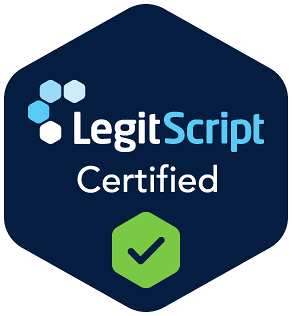By: Lincoln Norton
Editor’s Note: One year ago, Modern Addiction Recovery introduced Lincoln Norton to the addiction recovery community as the person who had enhanced Bill Wilson’s understanding of the 11th Step of Alcoholics Anonymous by instructing him in Transcendental Meditation (TM). Lincoln returns this month to expand on his positive experience in helping people with addictions recover using this simple but effective tool.
“When I transcended, I connected with something permanent, something I’d been seeking all my life…Transcendence treated the hole in my soul.”
—Jonah, recovering alcoholic and drug addict
As a teacher of the Transcendental Meditation (TM) technique for over 45 years, I have observed the devastating influence addiction can have in the lives of those I teach—and the profound effect that TM practice can have in helping them achieve healthy, fulfilling lives. Research suggests this simple mental procedure has a healing effect for all forms of substance use disorders, including alcohol, drugs, and tobacco. Meta-analyses have found that TM practice is significantly more effective than other meditation or relaxation approaches and other conventional programs used to treat addictions.
How does TM accomplish this? Jonah’s reference to the “hole in my soul” in the quote above reflects the experiences of many addicts who use substances to compensate for an inner emptiness—and to escape if only temporarily, the anxiety and depression that such feelings create.
TM allows the practitioner to reconnect with the Self within, the deepest level of the mind, which is a profound reservoir of creativity, serenity, and bliss. With regular practice, this experience of “transcendence” naturally provides a stable sense of inner peace, expansion, and fulfillment that replaces the craving for substances.
The exciting and rapidly developing field of neurobiology helps explain how this occurs. First, TM practice has been shown to increase production of neurochemicals associated with happiness and fulfillment, including dopamine, serotonin, and gabaminobutyric acid (GABA). Increase in these neurotransmitters reduces autonomic arousal and anxiety, decreasing the need for drugs or alcohol.
In addition, TM practice also reduces blood levels of the stress-hormone cortisol, elevated levels of which can contribute to a host of serious chronic disorders. NIH-supported clinical studies on TM practitioners have shown significant reductions in heart attack and stroke as well as improvement in insulin resistance—all effects that can be tied to reduced cortisol levels.
Further, during the practice of the TM technique, research has documented a remarkable state of brain integration. The electroencephalograms (or brain-wave patterns) of TM practitioners typically display high levels of orderliness, or coherence, suggesting greater communication among the different parts of the brain.
TM is best used as an adjunct to conventional rehabilitation programs. Researchers working with one of the most difficult-to-treat patient populations—so-called “skid row” alcoholics—concluded that adding TM to AA and conventional counseling programs significantly enhanced their effectiveness.
As chance would have it, in 1969 I was able to instruct Bill W. or Bill Wilson, one of the founders of AA, in Transcendental Meditation. Recovering addicts in 12-step programs who learned TM—including Bill Wilson, who learned TM late in his life—have commented that it fulfills for them the purpose of the 11th step, which encourages individuals to increase their conscious contact with a higher power as they work toward recovery.
Lincoln Norton is national director of institutional expansion for the Maharishi Foundation. He was a recently a speaker for a Kolmac School program as well as for the 2016 Tuerk Conference.
